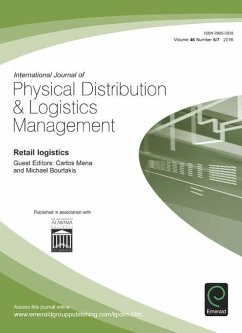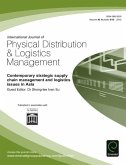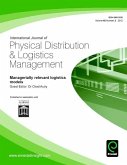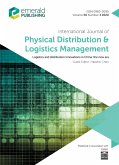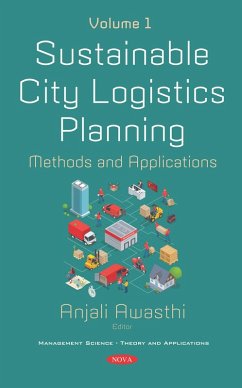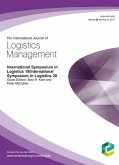The logistics function has always been central to retail firms' performance because it co-ordinates the product and information flows from suppliers and manufacturers to retailers and, finally, to consumers (Bourlakis, 1998). However, over the few years we have witnessed a major transformation in retail logistics, driven by changes in demand and stimulated by technologies such as e-commerce, mobile commerce, tracking and tracing, and data analytics. These changes have led to the development of multi-channel and omni-channel offerings (Rao et al., 2009), which are altering business models and forcing retailers and manufacturers to rethink the way they reach customers. Similarly, we have seen the rise of ethical customers who are putting pressure on retailers to improve their environmental and social credentials (Mena, et al. 2011; Spence and Bourlakis, 2009).Managing these challenges requires significant investments in warehousing, distribution and retail infrastructure. The development of fulfillment centers, dark stores, home delivery networks, new transport technologies and customer collection points are all responses to these changes. These developments are also creating new challenges such as the dramatic increase in customer returns and the associated cost and availability implications (Ettouzani, et al. 2012).The logistics and SCM research community has been active in helping retailer organizations understand these changes in the marketplace and their implications for retail logistics theory and practice. However, the dynamic nature of the phenomenon means that it is necessary to continuously investigate new developments and understand their impact on retail logistics. To this end, over the last two years, IJPDLM has published a number of papers that address various retailing issues. Topics include demand management in the grocery industry (Alftan et al., 2015), retail out-of-stocks (Ehrenthal et al., 2014), on shelf availability (Moussaoui et al., 2016), the use of data aggregation to mask the bullwhip effect (Jin et al., 2015), reverse logistics (Hazen et al., 2014; Morgan, Richey and Autry, 2016) and sustainability in e-commerce (Mangiaracina et al., 2015). This Special Issue further addresses the growing opportunities for research in the field of retail logistics.Twenty seven papers were received for this Special Issue and seven have been selected for publication based on the rigor of the research methods and the relevance and value of the findings for both academic and practitioner communities. The chosen papers cover a wide range of subjects including omni-channel logistics, product returns, e-tailing, inventory management, and the management of 'unsaleable' products. These papers incorporate various research methodologies using empirical data to produce insightful findings in relation to challenges and opportunities in contemporary retail logistics
Dieser Download kann aus rechtlichen Gründen nur mit Rechnungsadresse in A, B, BG, CY, CZ, D, DK, EW, E, FIN, F, GR, HR, H, IRL, I, LT, L, LR, M, NL, PL, P, R, S, SLO, SK ausgeliefert werden.

